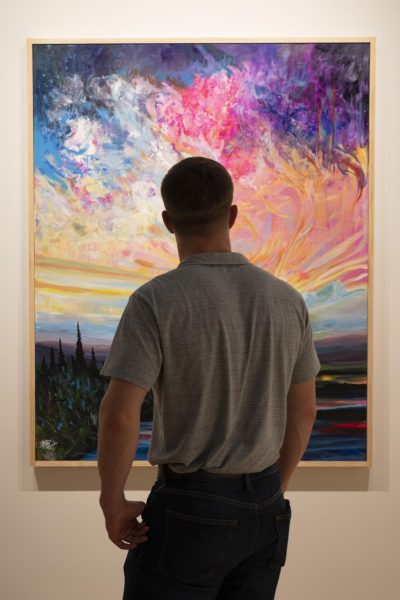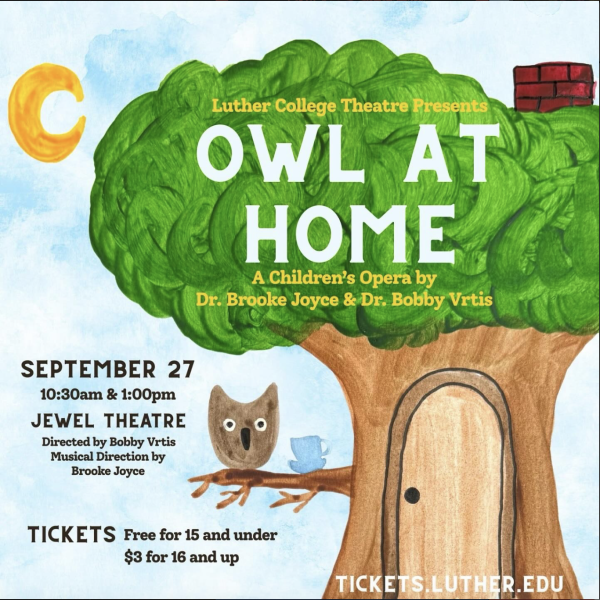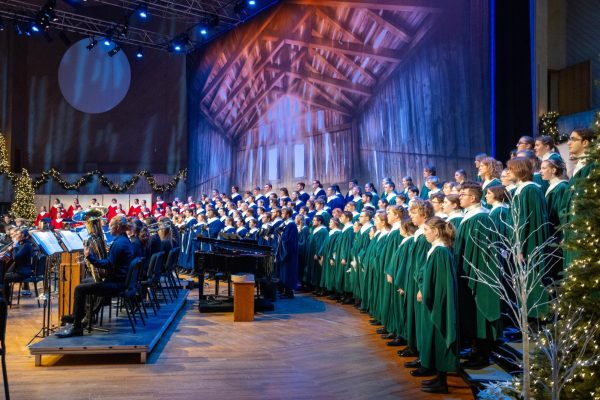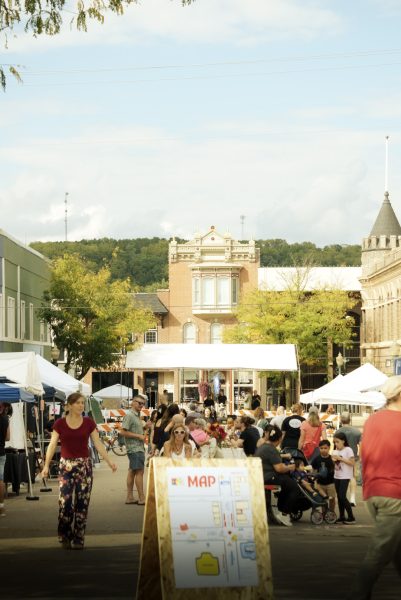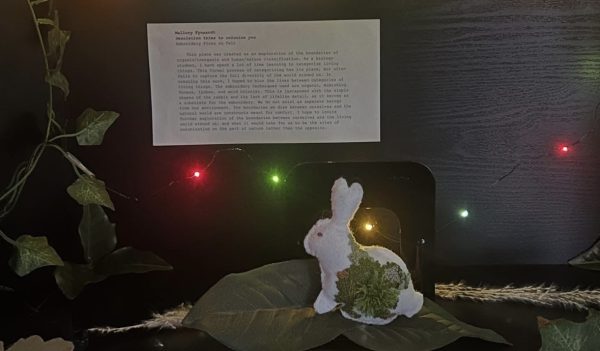CEPE Hosts Panel on the Evolving Role of the 21st Century Artist-Citizen
Coordinator of Opera and Professor of Music Andrew Whitfield was on the coast of the Adriatic Sea with a group of students in June 2016 when he received news of the tragic Orlando nightclub shooting. Struck with feelings he had not experienced before, Whitfield meditated on the idea of how an artist could be thought of as a first responder for the soul. Pulling from the various resources around him, Whitfield integrated the threads of music and scripture, creating a piece of art that transformed his view of himself as an artist and citizen.
Fast-forward to the present –Wednesday, February 23, at 7 p.m. in the Center for Faith and Life Recital Hall – where Whitfield returned to the idea of the artist-citizen, this time in conversation with a panel of Luther faculty. Joined by professors Jane Hawley, Richard Merritt, and Britt Rhodes, Whitfield moderated a discussion entitled, “The Evolving Role of the 21st century Artist-Citizen.” The event was sponsored by Luther’s Center for Ethics and Public Engagement. Whitfield began by posing a few questions that summarized the focus of the discussion.
“I’m asking all of us to consider why art matters,” Whitfield said. “How does art matter? What does it mean for us to be engaged citizens and artists at the same time, and what is evolving here for us?”
The event consisted of an hour discussion among the panelists followed by a brief question and answer session with the audience, where several students posed questions for the panelists to consider and respond to. After a short opening by Whitefield, discussion proceeded as the panelists shared their experiences and insights, engaging with questions such as “What does it mean to be an artist?,” “What does society need from artists today?,” and “How do you see the role of artist-citizens at work in students here?” Merritt’s first response shared how his upbringing influenced his broad and inclusive understanding of art today.
“I was always encouraged by my folks, who had no preconceived notions of art,” Merrit said. “I grew up asking what isn’t art, rather than what is art.”
Approaching the idea of the artist in the broadest sense, the discussion encompassed the unique perspectives that each panelist brought to the conversation. Whitfield shared his insights from the perspective of music and opera, while Merritt drew from his experiences as an instructor in art and visual communications. A professor of social work at Luther, Rhodes shared how she associated art with storytelling from a young age.
Hawley, who teaches dance and body studies, articulated an ephemeral and somatic view of art by sharing her connection to the natural world growing up. Additionally, Hawley articulated what she hopes to inspire in all students as artists.
“I hope that people see themselves as creatives,” Hawley said. “I hope they can develop a practice that brings themselves to the table and shares their contribution. It’s about being alive, because humans are artists.”
The panelists all share the creative act of teaching. However, the discussion extended far beyond their artistic influence in the roles of instructor. In thinking about the artist, Whitfield defined citizen, not in a political sense that creates division, but instead rendered the concept as someone who opts into the communities that they are part of.
“We have a homegrown conversation of artists and citizens,” Whitfield said. “I want to know what happens at the intersections of these identities. What do we discover in ourselves, each other, in our work together, and what is evolving here on this campus?”
Next week, students will also have a chance to share in this conversation. In the audience was Ani Chauhan (‘23), who will be one of the student panelists featured in an upcoming discussion on the same topic. Chauhan, who is minoring in music as well as visual communications and looking to pursue a career in art, expressed the significance of dialogue on this topic at Luther.
“The core of a liberal arts education is to make a well-rounded citizen,” Chauhan said. “It’s vital for everyone to have a form of expression to communicate their views, thoughts, and feelings in their own way.”
A student panel on this same topic will take place on Wednesday, March 9, at 7 p.m. in the CRH.

